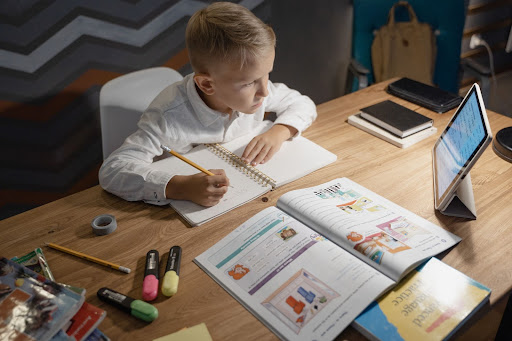 “Sight words” are common words that children can usually recognize instantly without sounding them out. Sight words can include both those that are phonetically regular, as well as irregular words. Recognizing words by sight helps kids become faster, more fluent readers. Some sight words may be irregular words, which makes them tricky to read and spell because they are not spelled the way they sound.
“Sight words” are common words that children can usually recognize instantly without sounding them out. Sight words can include both those that are phonetically regular, as well as irregular words. Recognizing words by sight helps kids become faster, more fluent readers. Some sight words may be irregular words, which makes them tricky to read and spell because they are not spelled the way they sound.
Having a large base of sight words helps children quickly. When they master a sight word, they no longer have to pause to blend letters and sounds together. They also don’t have to think about spelling rules.
Children with learning differences often struggle to process sight words, especially those with irregular spelling patterns. These tips, provided by one of the best boarding schools in the South, Currey Ingram Academy, can help them overcome this difficulty:
Get into the details.
Children with learning differences might need help noticing the details of a new word, especially if it’s spelled irregularly. Show your child the word and then read it out loud. Next, ask your child to identify the letters in the word. How does each letter sound? Are there vowels? How are they arranged? Which parts follow the rules? Which parts don’t? These tips help your child process the word in detail.
Use memory aids.
A mnemonic device is a tool that helps people remember information. For children, it could be a rhyme that includes the challenging sight word or connecting the sight word with an image. Another example would be using a song to help the child recall words easier.
Go for a multisensory learning experience.
Studies have shown that children with learning differences learn best when they engage as many of their senses as possible. Engage their sense of touch by having them trace letters of sight words with their finger. You can also cut letters out of sandpaper and have them feel the surface while saying the letters – and eventually the word – out loud.
Younger children might enjoy writing words in the sand, on a glass surface, or in shaving cream.
Encourage children to visualize the words.
Ask your child to have a good look at a word on a card to take a “snapshot” of it and keep the word in mind. After taking the card away, ask them to recall the letters they saw. What was the order of the letters? What vowel(s) are in the word? Visualization helps children remember, read, and spell new words.
Write the word down.
Have your child write the word a few times on a chalkboard while saying the letters and then the word. They can also write the word on paper a few times each day. Encourage your child to do this exercise until spelling them consistently becomes second nature to them.
Explore word origins.
Why is the letter “k” not pronounced in words like knife or knee? Why is the letter “e” not pronounced in words like give or love? Looking into a word’s history can teach children why it’s spelled the way it is. Boosting word knowledge can help them recognize sight words faster.
Track your child’s progress.
Display the words your child has mastered. Write them on index cards, then hang them up where your child can see them. Your child can refer to it for assignments and spelling practice. Knowing that they’ve come so far boosts their confidence, too.
Team up with your child’s school.
When parents work together with their child’s school, lessons learned in class are reinforced at home.
Make learning fun!
Make lessons more engaging by playing word and memory games like Go Fish, Tic-Tac-Toe, Hangman, and Bingo. You can also come up with your own games; the internet is a great source for game ideas.
Take your time in introducing new sight words.
Keep learning goals manageable by introducing one word a day until your child has 10 new words to work with. You can also add one new word for each word your child masters. This gives them a sense of accomplishment and encourages them to continue learning.
Currey Ingram Academy, one of the most well-known boarding schools in the South, supports and empowers students with learning differences to achieve their fullest potential – academically and socially – within an environment that fosters holistic student development. Get in touch by calling (615) 507-3173.
 InformatioNation InformatioNationBlog.com
InformatioNation InformatioNationBlog.com